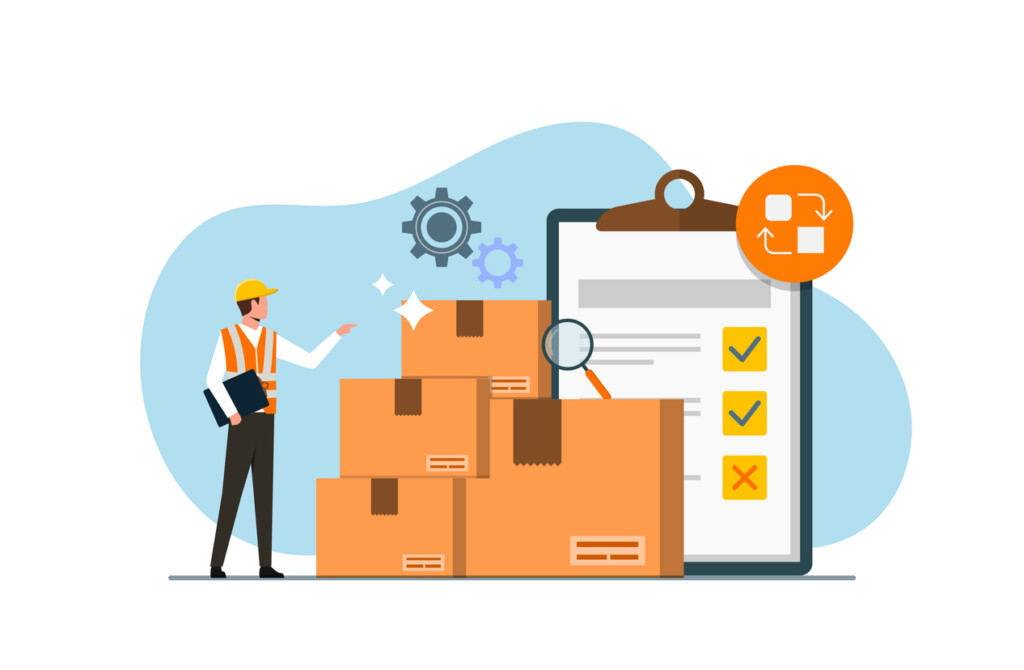In the logistics industry, one of the most coveted roles is that of the logistics manager. The forecast for logistics managers is promising, with a projected job growth of 30% between 2020 and 2030. That equates to around 24,500 job openings each year. Logistics managers are needed in almost every industry, so the need is widespread. Land one of those positions, and you have the potential to earn between around $98,000 a year and $128,000, depending on the location and industry. A great logistics manager is worth their weight in gold. In our experience, here’s what you need to know to become a great one.
Firstly, what does a logistics manager do?

Logistics managers perform a variety of tasks, but their job boils down to resolving problems around the transportation of goods and supplies. Their exact duties vary depending on the size and purpose of the company they work for, but most logistic managers are responsible for:
- Managing stock levels and monitoring delivery expenses
- Coordinating deliveries
- Evaluating the performance of past deliveries to assess where there’s room for improvement
- Resource management
- Using logistics software to improve efficiency
- Negotiating with everyone from suppliers and manufacturers to retailers and customers
- Training and managing members of a logistics team
It’s a big job, and it’s not the kind of job that comes with a fixed list of daily duties to check off. Logistics managers are required to think critically to solve problems as they arise, keeping operations running smoothly.
How does one become a logistics manager?
A logistics manager generally needs the following credentials:
- A bachelor’s degree, preferably in business management, supply chain management, logistics, or a similar related field.
- An MBA if you want to really compete.
- Experience in the industry. Working for at least a few years in operations analysis, operations engineering, or supply chain management are all viable ways to get your foot in the door.
Being qualified to be a logistics manager on paper is a great start. If you want to become a good logistics manager, however, don’t stop there. There are several skills to hone that are crucial to any logistics manager hoping for a lucrative and rewarding career.
Great logistics managers have seven key soft skills

Communication
Communication skills are non-negotiable for logistics managers. They’re required to communicate clearly and efficiently with everyone from clients to business partners to team members on the floor. Miscommunication is rarely intentional, so being precise, articulate, and proactive about all communications, both written and verbal, is indispensable.
Social skills
Clarity is important, but so is quality. Solid interpersonal skills are crucial in logistics, as dealing with people from all walks of life is a daily requirement. Good logistics managers prioritize building a good rapport with everyone, including bosses and those they’re responsible for overseeing. They also need to be adept at staying connected within their chosen industry, both to keep up with changing technology and to stay abreast of industry updates and politics.
Leadership skills
Any job with “manager” in the title needs good leadership skills, and the role of logistics manager is no different. They’re in charge of an entire team looking to them for guidance. To do so well means exhibiting clear expectations and objectives, encouraging and celebrating good work, and responding to difficult situations with sensitivity and tact. A great workplace is made by a great manager, so consider the kind of workplace culture you want to foster before you even apply for the job.
Organizational skills
Being disorganized is a nonstarter for logistics managers. There is so much to keep track of that being messy, procrastinating, or poor planning will result in serious consequences. Think late deliveries, unhappy customers, confused employees, and unhappy bosses. Learn to love being organized, or explore other career paths that require less attention to detail.
An analytical mindset
Anyone who isn’t a fan of data analysis should think twice about going into logistics or supply chain management. The amount of data coming in each day is massive. We’re talking BOLs, AQLs, KPIs, employees to account for, schedules to monitor, and that’s just the start. Once all the data is in, you have to be able to analyze it and implement changes to improve operations. If you like solving puzzles, logistics manager life might come naturally.
Decisiveness
As a logistics manager, you have the final say on numerous decisions leading to a company’s ultimate success or failure. It’s up to you to think critically and make the most sound decisions for best of the company, even under stressful conditions. You also have to make tough calls and enforce new policies to improve performance.
Adaptability
While logistics managers have to stick to their guns in some ways, they also have to think on their toes and adapt to changing circumstances. The supply chain is constantly evolving, as are our tools to monitor it. Methods of automation are growing by the day, and new transportation management systems can yield substantial improvements in visibility and shipment management. Being able to adapt to a changing business landscape is critical for becoming the kind of logistics manager a company can’t live without.
Bottom Line: It’s a great job for the right person
Being a logistics manager is an important role with a great deal of responsibility, but it can be an excellent, stable career if you have the right skills.







